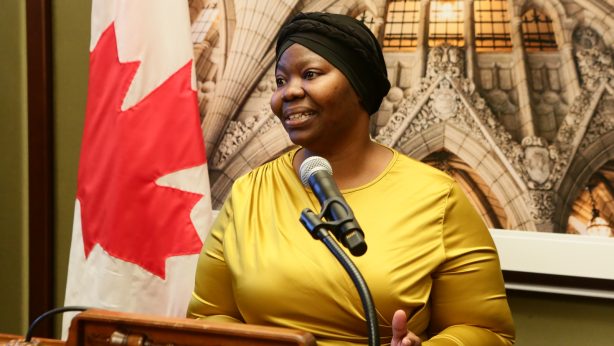CUPE calls for removing rule in public dental care plan that excludes temporary foreign workers and other recent immigrants
CUPE National President Mark Hancock is applauding the Liberal government’s commitment to protecting the Canadian Dental Care Plan while also urging Minister of Health Marjorie Michel to reconsider a rule that precludes people with spouses outside of Canada from being eligible for coverage. CUPE says the rule disproportionately affects workers who have temporary work permits and recent immigrants who are in the process of family reunification.
In a webinar hosted by the Canadian Health Coalition on April 22, dentist Dr. Brandon Doucet noted that targeted programs such as the Canadian Dental Care Plan are inferior to universal programs because it leaves some people out. Dr. Doucet and the Coalition for Dentalcare are continuing to champion universal dental care in Canada.
Read CUPE National President’s Mark Hancock’s letter to Health Minister Marjorie Michel here and below.
September 8, 2025
The Honourable Marjorie Michel, P.C., M.P. Minister of Health
House of Commons OTTAWA, ON
K1A 0A6
Dear Minister:
I am writing to applaud your commitment to protecting the Canadian Dental Care Plan (CDCP). The program is widely popular and has made a real difference in the lives of people who could not previously afford this fundamental service. As you know, the number of approved applicants has grown from just over 3 million in 2024, to nearly 5 million as of July 31, 2025. This remarkable growth reflects real impact as over 1.7 million Canadians have already received care, with many accessing dental services for the first time in years due to the removal of financial barriers.
We are concerned that there is a core demographic group being excluded from this life- changing program. Families where one spouse is non-resident and has not filed a Canadian tax return are automatically excluded from being considered. This rule will disproportionately affect workers who have temporary work permits and recent immigrants who are still in the process of family reunification.
This rule has been justified on the basis of the income-tested nature of the program. However, this standard is not consistently applied across income-tested federal government benefitsFor example, the Canada Child Benefit (CCB) has an additional form for reporting the world-wide income of a non-resident spouse or common-law partner. This form supplements the information that is already entered on the first page of a worker’s tax return, which asks for a spouse’s name, SIN, and net income, whether or not that spouse has filed a tax return.
This inconsistent approach extends beyond the CCB. For example, eligibility for the Guaranteed Income Supplement (GIS) also considers non-resident spouse income but it does not depend on whether a non-resident spouse has filed a tax return. Federal programs such as the CCB and GIS demonstrate that federal programs can maintain income-testing standards while accommodating mixed-status families.
CUPE urges you to reconsider this exclusionary rule and move to a model where workers areallowed to attest to their spouse’s income and / or financial contributions to the household. Aligning CDCP eligibility criteria with established federal benefits practices would uphold the program’s income-testing criteria while ensuring that a large group of vulnerable workers are not excluded from the benefits of Universal Health Care.
Yours sincerely,
Mark Hancock
National President


